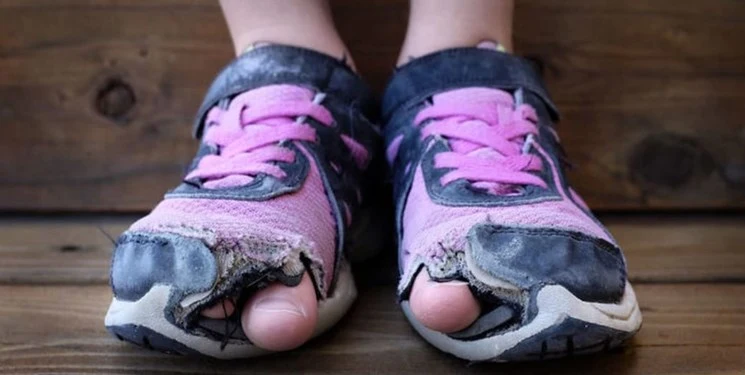Britain’s Shame: More Than 120,000 Children ‘Destitute’

A new survey has found that more than 120,000 children in Britain are living in destitution, the most extreme form of poverty. The survey, conducted by the charity Buttle UK, found that six in ten of the children they work with are experiencing extreme poverty, up from 45% the previous year and 36% in 2021.
 UNABLE TO CONCENTRATE: Britain’s kids are suffering in extreme poverty
UNABLE TO CONCENTRATE: Britain’s kids are suffering in extreme povertyChildren in destitution lack basic necessities, face other deprivations
The definition of destitution used by Buttle UK is based on the United Nations’ definition, which includes children who are unable to afford basic necessities such as food, clothing, shelter, and heating. The survey found that children living in destitution are also more likely to experience other forms of deprivation, such as going without medical care, missing school, and being homeless.
Rising cost of living puts children in poverty
The reasons for the increase in child destitution are complex and multifaceted. However, the survey found that the rising cost of living, cuts to benefits, and the impact of the COVID-19 pandemic are all contributing factors.
The rising cost of living has made it increasingly difficult for families to make ends meet. The price of food, energy, and housing have all increased significantly in recent years, and this has put a strain on household budgets.
Cuts to benefits have also made it harder for families to afford the essentials. The government has cut the value of many benefits, including Universal Credit, which is the main safety net for low-income families. These cuts have left many families struggling to make ends meet.
 A big muddy teddy bear lies on the floor in front of a house (Image: CHRISTOF STACHE/AFP via Getty Images)
A big muddy teddy bear lies on the floor in front of a house (Image: CHRISTOF STACHE/AFP via Getty Images)Child poverty rates soar as pandemic drags on
The impact of the COVID-19 pandemic has also had a negative impact on child poverty. The pandemic has led to job losses and wage cuts, which has made it harder for families to make ends meet. The pandemic has also disrupted education and childcare, which has made it more difficult for parents to work.
The findings of the survey are a stark reminder of the scale of child poverty in Britain. The government must take urgent action to address this issue and ensure that all children have the opportunity to thrive.
Government must take long-term view to end child poverty.
In addition to the immediate measures that need to be taken to help families in poverty, the government also needs to address the underlying causes of child poverty. This includes investing in education and childcare, creating good quality jobs, and raising the minimum wage.
The government must also do more to tackle the root causes of inequality, such as racism and discrimination. These factors play a significant role in determining who is most likely to live in poverty.
child poverty is a product of the capitalist system. Under capitalism, the means of production are owned by a small minority of wealthy individuals, while the majority of people are forced to sell their labor power in order to survive. This system creates a class of exploited workers who are paid less than the value of their labor, which leads to poverty and inequality.
Child poverty is a stain on Britain’s conscience. The government must act now to ensure that all children have the opportunity to reach their full potential.


- Art
- Causes
- Best Offers
- Crafts
- Dance
- Drinks
- Film
- Fitness
- Food
- Games
- Festival
- Gardening
- Health
- Home
- Literature
- Music
- Networking
- Other
- Party
- Religion
- Shopping
- Sports
- Theater
- Wellness



